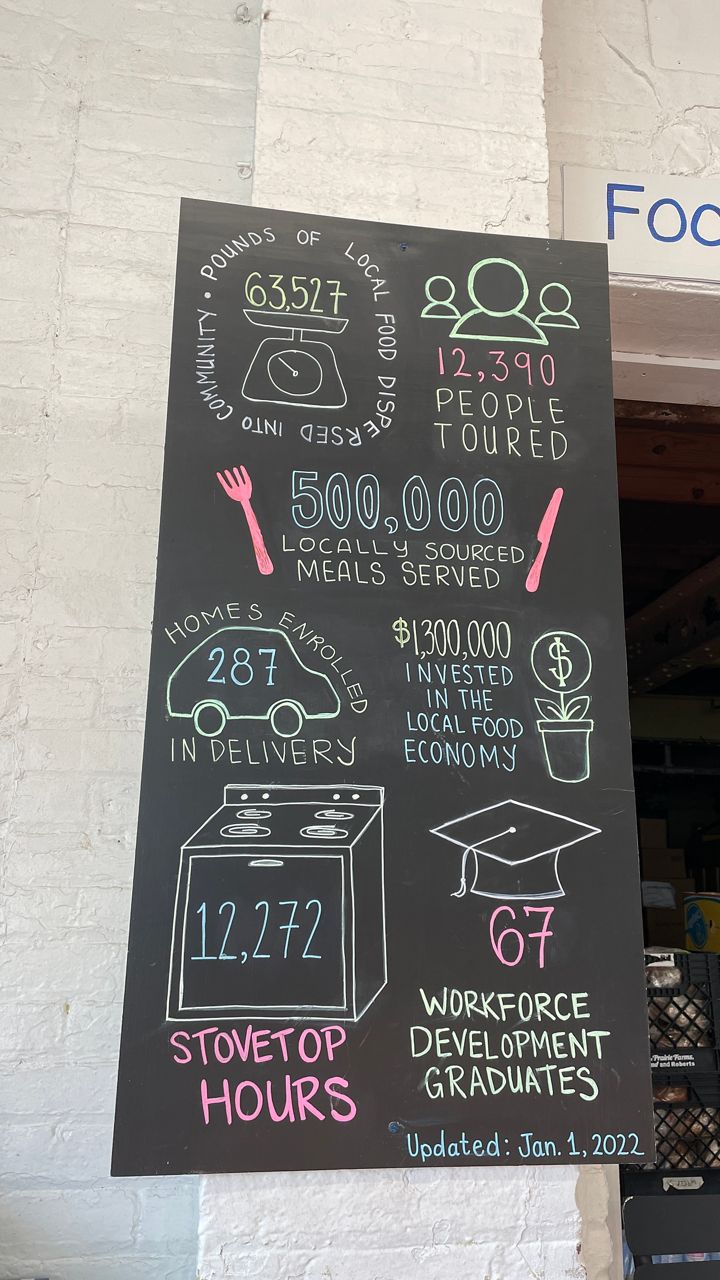LEXINGTON, Ky. — As families across the Bluegrass are continuing to recover from damage caused by historical severe storms on Friday, Lexington’s nonprofit Food Chain is making sure they can help with food necessities for people who need them.
Food Chain is a group that is bringing an interesting twist to combating food security. With thousands still without power around central Kentucky, they are ramping up efforts to provide people with enough to eat.
3 years ago, Amber Lawrence joined the Food Chain team during the pandemic, which she believes was one of her first calls to help. “Meal recipients, who actually live in apartments, actually did lose power for a while,” Lawrence pointed out.
The nonprofit is Lexington’s one-stop location for sustainable food services.

Lawrence says they step up however they can help, which might mean replacing food items that are spoiled and damaged. “Or supplement their own grocery bill so that they can take that money and use it, put it towards their electric bill or some gas money,” she added.
It also includes tours of their in-house aquatic farm — one of the city’s first and only aquaponics systems, which is a soil-less fish friendly farm. It’s one of the ways they teach people how and where food can be produced.
Weekly, the group receives donations from stores like Trader Joe’s to make it happen. The items vary from all food major food groups and can provide families with things that are significant to their lifestyles and values.
Then they either box up these items, or make a colorful lunch or dinner to bring right to the front doors of those they help.
“Whether it’s hot meals that we’re cooking or food items that we can use in our meals, or it’s something that we can give people and let them use in a way that is more culturally appropriate, maybe,” Lawrence explained.
Since 2011, the Food Chain has been an advocate for people in areas that lack direct access to healthy food. These places are also referred to as food deserts, according to former Executive Director Chaquenta Neal. It’s also why they include education in every meal, for example using an information packet to explain how to break down a whole chicken, or sharing recipes for sustainable and resourceful meals.
Neal says their work is not just essential, but it’s also sentimental.
“It’s all about love. It’s all about creating something that’s meaningful and intentional and giving you the educational view of where your food is coming from and so that you feel connected to it,” Neal said.
Food Chain Lex offers as many as 150 different families with access to meals during times like these.



